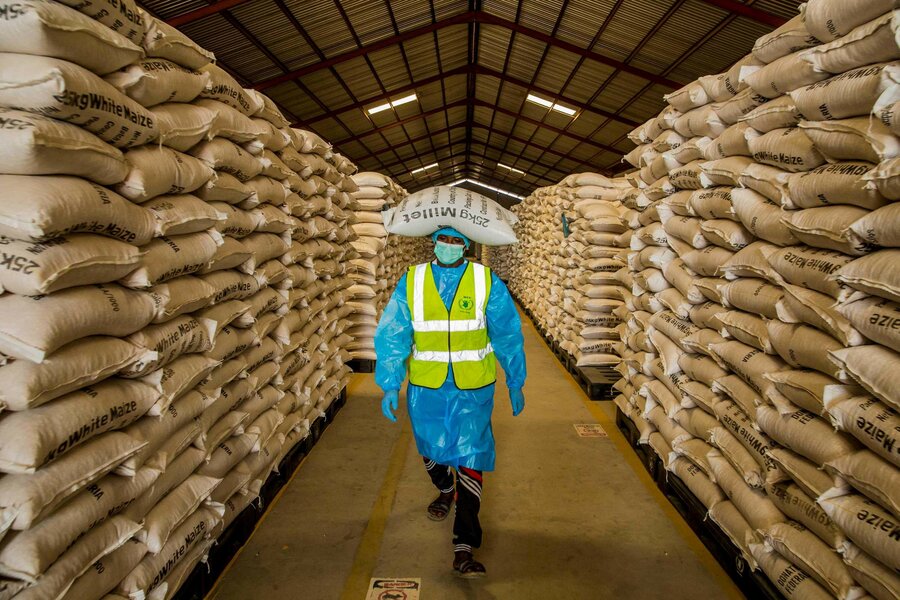NAIROBI – The United Nations World Food Programme (WFP) has received a $37 million donation from the Government of the United States to provide critical food and nutrition assistance to refugees in Kenya. The donation will enable WFP to increase distribution to vulnerable refugees and resume cash transfers in Dadaab and Kakuma until December 2024.
Working with governments and the UN refugee agency, WFP has also begun to move from providing uniform assistance to refugees to a “needs-based” approach, in which WFP provides food assistance based on each family's food security and socio-economic situation. Currently, 650,000 refugees receiving WFP support receive the same level of food assistance.
“By tailoring assistance to the level of need, we can ensure that the most vulnerable are prioritised based on available resources, while supporting them to move away from humanitarian assistance and become self-reliant,” said Lauren Landis, WFP Country Director in Kenya.
The new funding from the US government comes at a time when chronic funding shortfalls have led to gradual cuts in food rations, reaching an unprecedented low of 40 percent, and the temporary suspension of cash transfers to 580,000 refugees living in Dadaab and Kakuma refugee camps since May 2024. Refugees in Kenya have also fallen victim to the climate crisis in recent months, with droughts and floods destroying what little property they have. Kenya has seen a 60 percent increase in its refugee and asylum seeker population since 2019.
“Refugee families have been in a very difficult situation for the past two months, surviving on less than half the minimum food needed for a healthy life,” Landis said. With support from the U.S. government, WFP will increase this to 60 percent of the minimum ration and resume Bamba Chakra cash transfers in Dadaab and Kakuma. This will provide more food to families, revitalize local markets, and increase the availability and accessibility of diverse diets.”
WFP's shift to “needs-based” assistance will provide a powerful boost to refugee self-reliance. It is part of a broader refugee transition plan and complements the government's policy to transform refugee camps into integration settlements. This shift recognises that refugees are key actors in Kenya's socio-economic development and, if supported, can participate and contribute to the country's economic growth.
/Public Release. This material from the originating organization/author may be out of date and has been edited for clarity, style and length. Mirage.News does not take any organizational stance or position and all views, positions and conclusions expressed here are solely those of the authors. Read the full article here.
Source link



